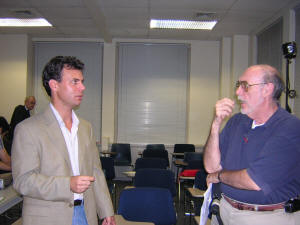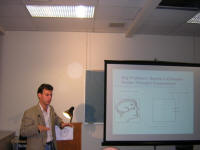Representationalism is the view in philosophy and cognitive science that the mind is nothing more than a representational system. According to representationalism, any two creatures that are representationally identical are mentally identical.
The chief obstacle to representationalism is consciousness. Consciousness, it has been argued, resists explanation in representational terms. The philosophical debate over consciousness and the representational theory of mind is outlined and the two dominant representational approaches to consciousness – first-order and higher-order representationalism – are examined and shown to have serious problems. A third approach – same-order representationalism – is put forward and shown to avoid these problems.
The issues in the debate draw on philosophical arguments as well as noted studies in neuro- and developmental psychology and primatology. Finally, a few objections to the same-order approach are raised and suggestions are provided on how the theory could be developed to overcome them.



